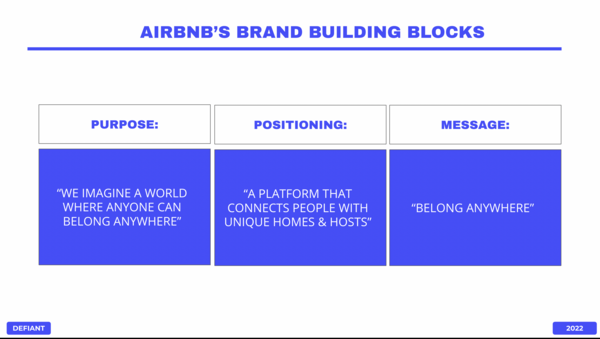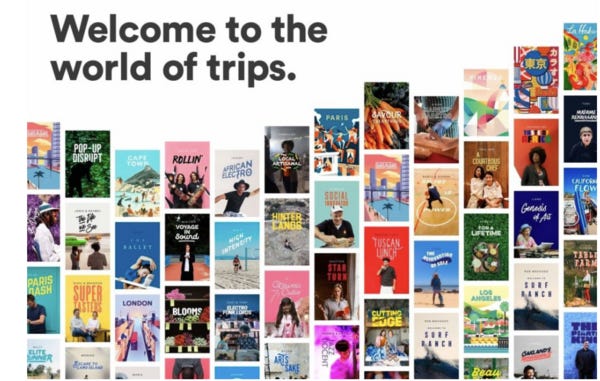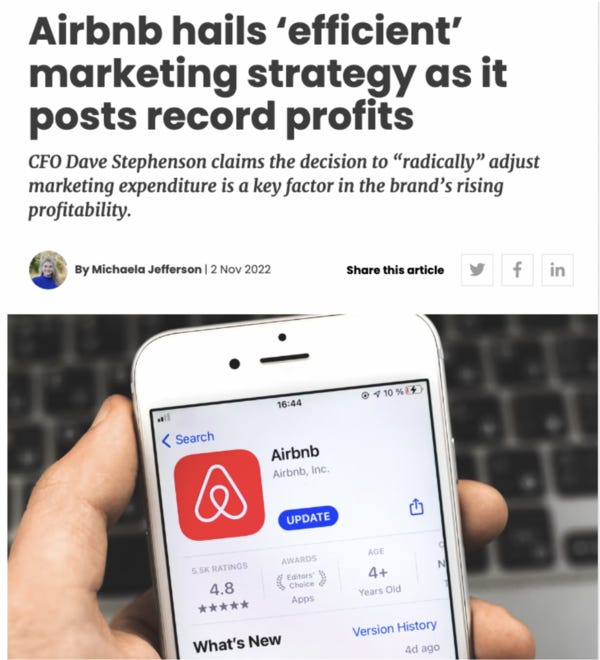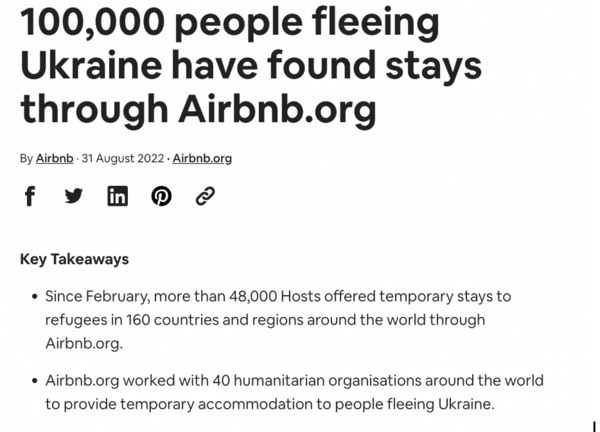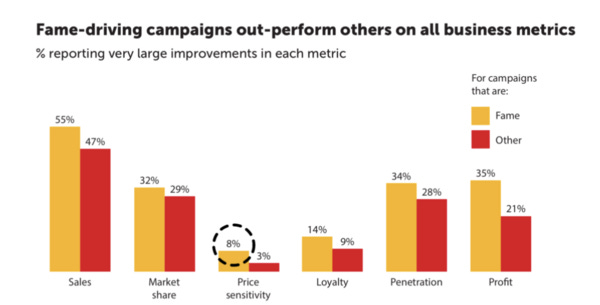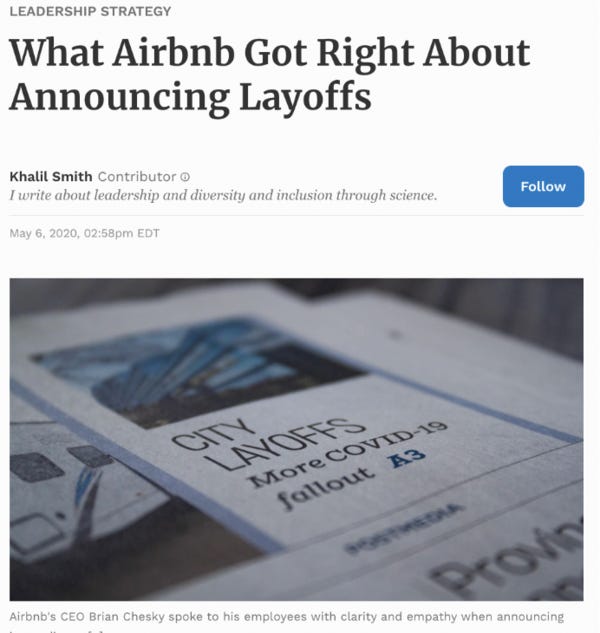Airbnb should have never succeeded. The CEO had no real business experience. The idea of holiday rentals has been done before. In fact, the idea was illegal in many cities. And even the company’s founders didn’t think it would work. Yet despite all of this they went on to build the world’s biggest travel company and achieved a market cap of over $60BN.
How did they do it? Read on to find out. 👇👇👇
INTRODUCTION
The two original founders of Airbnb, Brian Chesky & Joe Gebbia, had hit hard times. Several of their startup ideas had failed. They were running out of money. And they were about to get evicted from their apartment.
Yet not all was lost. Being entrepreneurially minded, they spotted an opportunity. A major up & coming design conference made them realize two things. First, San Francisco’s limited housing stock meant many attending the conference would be left without a place to stay. Second, the three spare air beds in their apartment could meet this demand and help generate some much-needed money. And so they set up a basic website, promoted their spare room with local journalists and the bookings started rolling in fast.
In truth, the founders didn’t originally realize the potential of their ‘airbed business’. They viewed it as a side hustle that could help fund their other startup ideas. However, over time, they kept coming back to their airbed idea. They began to realize the massive potential the business had & invested all their time, energy and money into scaling it. They brought in a third founder Nathan Blecharczyk, an old college roommate who helped them overhaul the basic Airbnb website. They secured a place at the prestigious incubator, Y Combinator. And they began to think bigger than San Francisco, scaling to other cities across America and eventually the world.
Yet the road ahead wasn’t easy. And it was filled with massive hurdles and barriers to overcome. So how did they do it? How did three guys with a few spare airbeds scale to become the biggest travel company in the world?
Here are the four most important things you need to know👇👇👇
#1 STAND FOR SOMETHING BIGGER
You only have to spend a few minutes looking at the travel category, to realize it loves a cliche. Brands love to focus on exotic destinations and deals. The problem with this approach is that everyone ends up looking the same & it becomes incredibly hard to stand out.
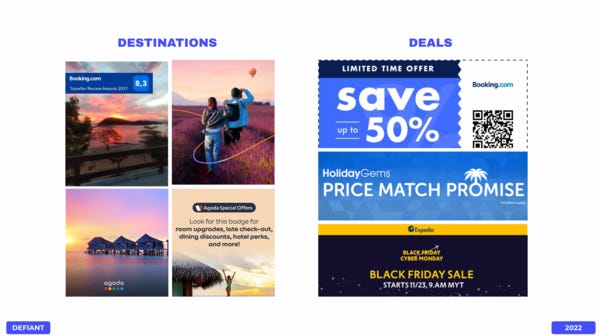
As Airbnb looked to scale it sidestepped the category and avoided this trap. Instead of defaulting to cliches, it went out and actually spoke to its customers, to figure out what made them different and what people loved about AirBnB. Over a three and half week period, they spoke to hundreds of hosts, guests and employees face to face. They drilled down into the emotions & stories associated with the brand.
At the end of the research, they reviewed the hundreds of stories they brought back and a powerful truth revealed itself. Time and time again, two things kept coming to the surface. First, the host’s kept saying their role was ‘to enable a stranger to feel at home in a strange place’. Second, guests kept saying that AirBnB made them ‘feel at home in a strange place’. Tying these two threads together the team crafted a powerful purpose ‘We imagine a world where anyone can belong anywhere’. A purpose that led them to a compelling positioning and thought-provoking brand message.
The genius of their purpose, positioning and messaging is that it speaks to three truths. First, it speaks to a truth about the product, that with AirBnB you can stay with locals and experience local life. Second, it speaks to a truth about how current customers saw the platform. Third, it appealed to a bigger cultural truth. That people had grown tired of homogeneous hotels & holidays and wanted a more authentic experience. One that was unique to that space and place. Beyond this, however, and what truly made this purpose so powerful, is how they brought it to life.
#2 BE SIMPLE. BE AMBITIOUS.
The worst purposes are complex. They are overly intellectual, built-in marketing ivory towers. Ones that sound incredibly smart on paper, but are completely useless when applied in the real world. The best brand purposes are simple in definition & broad in ambition. They speak to a powerfully simple truth that people can identify with. But they are also broad enough to drive the brand forward, in everything it does.
AirBnB’s idea of ‘Belonging Anywhere’ does exactly that. It is simple and powerful, yet brilliantly broad. Its purpose wasn’t left in some marketing manager’s desk gathering dust. It went on to guide everything they did. It informed their striking new visual identity, which was a breath of fresh air in an often cliche travel category.
Ref 3: AirBnB’s purpose-led everything they did, including their brand design.
Their purpose also helped to inform product innovation, seeing the company go on to create ‘AirBnB experiences’. A new product that allowed people to deepen their sense of ‘belonging anywhere’. A product that allowed people to go beyond just living like a local and actually experience all the things local people might do in any given area. And with well over one million bookings to date, this innovation born from its purpose has proven to be a great success.
Ref 4: Airbnb’s purpose-led to its lucrative extension into experiences.
This purpose also helped the brand avoid the cliches of category communications. ‘Belong Anywhere’ has guided the brand to consistently create powerful & emotive communications. From earlier work that championed the idea that humanity has more in common than most of us realize. To more recent work that celebrates diverse and rich stories of people travelling & belonging anywhere. This approach has proved highly effective for Airbnb. It has enabled them to build strong brand equity and become top of mind in the travel category. And in a category that is too often obsessed with short-term performance marketing, they are in fact doubling down on brand marketing.
Ref 5: While many tech brands double down on performance marketing, Airbnb understands the power of brand.
#3 MEANINGFUL ACTION
When you create your brand purpose, you need to think much bigger than visual identity and communications. Importantly, your purpose should be backed by meaningful action. If you truly believe you want to ‘create a world where anyone can belong anywhere’ you need to act on that purpose. And that is exactly what Airbnb has done time and time again. In times of crisis, they have helped people feel welcome, anywhere. During the Afghanistan refugee crisis, they helped to house 20,000 refugees. During the war in Ukraine, they helped to house over 100,000 refugees. And during the height of the COVID-19 pandemic, they made healthcare professionals, who were forced to distance themselves from loved ones, feel a little more at home by hosting over 100,000 of them. In short, you need to walk the walk, not just talk to the talk. You need to back up words, with meaningful actions.
Ref 6: Airbnb are masters at backing up their purpose with meaningful action.
#4 AIM FOR FAME
Fame is the biggest driver of growth. It’s the reason why it’s our centre of gravity at Defiant. It’s how we help brands transform faster. And it’s something Airbnb has done incredibly well time and time again.
Ref 6: We know that fame is the single biggest driver of growth (source: IPA Datamine)
Ref 7: Airbnb’s handling of layoffs, with a personal note from the CEO, is fame-generating.
The idea of fame is in fact nothing new for the brand. If we go right back to the beginnings of the company, it is something they have always intuitively understood and done so well. Before they had even landed on their powerful purpose, they created limited-edition cereal brands to ride the hysteria around the 2008 US election. They have also had a long history of reaching out to local, and then national journalists, to create fame and buzz about what they were up to. All of which is a great way to find fame.
Ref 8: An early example of Airbnb’s fame.
SUMMARY
Airbnb is a brilliant example of how to rise above the category, speak to a bigger truth and capture the world’s imagination. In summary here are the four key things we can learn from them:
Don’t get bogged down in cliches and stand for something bigger than the category.
Your purpose should be simple in definition and broad in ambition. You should be wary of complexity at all costs and discover something that will guide all you do.
Purpose is nothing if it’s only words without actions. You need to back up what you believe in with meaningful action.
The worst thing you can do is play it safe, or follow the category. You need to aim for fame and get remembered.
I really hope you enjoyed this case study. If you did I would love it if you share this post on Linkedin or recommend the newsletter to just one person. It helps us grow this community.
Finally, please excuse any typ0s…i’m proudly dyslexic.
Many thanks,
Will Poskett
Co-Founder | Strategy Partner
Defiant





